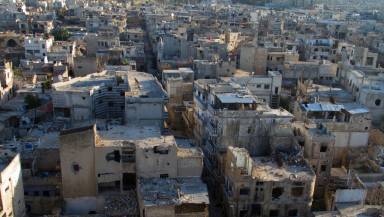
When Bashar al-Assad was overthrown by Islamist rebels in Syria in December after 14 years of civil war, there were concerns as to what this might mean for the Christian community in the troubled state.
If al-Assad was a tyrant, he was at least a secular tyrant, and so did not feel any need to victimise or destroy Christianity under his rule, something that cannot always be said for middle eastern governments.
Although there were many armed groups opposed to al-Assad, it was Hay'at Tahrir-Sham (HTS) which delivered the killing blow and now holds the reins of power in Syria. Despite sometimes having a message of "inclusiveness" according to the BBC, HTS being an offshoot of al-Qaeda, is an obvious source of concern for Christians in the country.
The new leadership in Syria has indicated that it will allow religious freedom, however reports from the area suggest that a lack of central authority may be leading to incidents of discrimination on the ground.
A source on the ground told Catholic charity Aid to the Church in Need (ACN) that while church leaders have been personally assured that religious minorities will have equal rights under the new constitution, there have been cases of Islamists enforcing gender segregation on public transport and forcing women to wear veils.
The source added that international attention on the country was preventing excesses being carried out by the new government in major cities: "Damascus is in the spotlight, which pressures the former rebels to be more peaceful, and to maintain the positive image they have."
While the Islamists have been on mostly good behaviour in major cities like Damascus and Aleppo, the source claimed that things were different in smaller cities like Homs and Hama.
"It is a mixed area, with ten religious confessions living in the same place, and neighbourhoods are mixed, which makes it difficult," they said.
"It was also a difficult situation during the war. People avoid being on the streets after 5pm.
"There are jihadists on the streets, using megaphones to call on people to convert to Islam and telling women to veil.
"Fear is really very pronounced – Christians cannot work, many stay home."
One part of Syria known as the Valley of the Christians, due to its exclusively Christian population, has been described as peaceful. However, travel into and out of the area can be dangerous.
Militants sometimes set up roadblocks and deny passage and take the belongings of those who will not convert to Islam.
Ultimately it is the on the ground realities rather than political promises that will determine the fate of Syria's Christian population. Let us not forget that in North Korea, religious freedom is guaranteed by the constitution and yet it means nothing.













